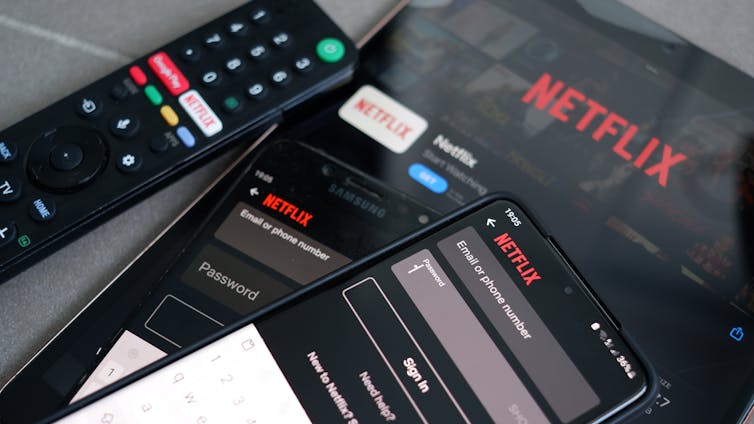Detta inlägg post publicerades ursprungligen på denna sida this site ;
Date:
Author: Rss error reading .
Original article: https://theconversation.com/how-the-uk-and-europe-could-respond-to-trumps-liberation-day-tariffs-253650
In a carefully choreographed address from the White House Rose Garden, US president Donald Trump announced a massive package of trade tariffs. These include 20% on imports from the European Union, 24% on those from Japan, 27% for India, and 34% for China. The UK gets the lowest rate, at 10%.
A tariff is a tax on imports, paid by producers and consumers of the importing country.
US producers will pay more for their inputs – the things they need to produce their goods – from the rest of the world. US consumers will pay more for foreign products. But they will also pay more for US-made goods, because production costs will increase, and US producers will face higher demand from consumers seeking to substitute imports.
Tariffs serve a role in protecting nascent industries, or in countries with limited state capacity. They may protect some strategic or politically powerful firms and workers from international competition. But mostly they just hurt everyone directly or indirectly involved.
So what is the Trump administration trying to achieve?
The official goal is to have a tax that is sufficiently high to reduce the trade imbalance between the US and the rest of the
world. Every month, the US imports goods and services worth tens of billions of US dollars more than those it sells to other countries.
Since Donald Trump returned to office, US firms have anticipated future tariffs by importing more. This has increased this deficit to a record-high of US$131 billion (£99.7 billion) in January, twice as large as it was only a year ago.
The way the US trade deficit works is simple. US consumers buy cheap products from other countries in exchange for printing money at little cost. The trick is that the rest of the world buys US currency as a reserve of value, or to invest in US assets. This seems like the dream deal. Americans get richer and the country is flooded with investment, making it the technological centre of the world. This in turn keeps the dollar strong.
But there is a counterpoint, increasingly prevalent in the circles that surround the US president. This dream deal is bad for US manufacturing and creates a dependency on foreign producers and investors. Crucially, it depends on the US remaining the ultimate currency in perpetuity.
So, will Trump’s plan help him achieve his goal of reducing US imports relative to exports? Tariffs will not increase exports. But by making foreign products more expensive, they can massively decrease imports.
In practice, this is only sustainable if the US wants to become permanently poorer. If the US economy becomes weak enough that the US dollar is not a desirable investment, it could become the factory of the world and sell cheap products, while not being able to afford what foreigners produce. This was China’s development strategy in the mid-2000s.
Time to choose a response
Whether this is what US citizens want to achieve is a question for them. As for the rest of the world, the time has come to decide how to react.
The reasonable take, favoured by British prime minister Keir Starmer, is this: if tariffs are bad, adding more in retaliation will not be better.
The UK is therefore poised not to retaliate, but to seek a trade deal with the US instead and to give Trump enough rope to climb down.
Removing bilateral trade barriers would be good for both economies. But it would also send a message that the way to obtain concessions from the UK is to bully it. The US and everyone else will learn the lesson, and act accordingly in future.
A deal will also end the embryonic tax collected since April 2020 on the revenues of tech giants like Amazon, Google and Meta. Given their increasing importance, such a de facto tax exemption would mean ever-increasing rates on British workers and businesses.
The tit-for-tat path, taken by the European Commission, is to retaliate and hope that it will force the US to climb down.
As happened during Trump’s first administration, the EU will tax a chosen subset of US products like Harley Davidson motorbikes and bourbon. But the goal is to do much more and to use the size of the EU’s single market to attack the driving force of US economic growth: its tech giants.
The boldest tool is the new “anti-coercion instrument”, developed by the European Commission in anticipation of a second Trump mandate. This is a very slow but potentially devastating legislative process that goes as far as allowing the suspension of intellectual property rights for companies based in countries that attempt to coerce member states through economic warfare. What this could mean, in effect, is the EU choosing not to enforce international laws protecting the intellectual property of American firms.

wisely/Shutterstock
In essence, the EU would say: if you do not respect the international order, from the rules of trade to international law and climate agreements, we do not respect your rules either. In practice, no one within the EU would be sued for pirating a Netflix show, or for creating a free clone of US software or apps, until the US returns to a more cooperative pattern of behaviour.
The obvious problem with this approach is what to do if the US does not embrace more cooperative behaviour.
This may lead to the most dramatic path – a reorganisation of the world order that more or less avoids the US. Chinese media have reported, for instance, that China is trying to work with US allies Korea and Japan to overcome global tariffs.
A sort of “coalition of the willing” with a larger group of countries to recreate global cooperation seems far-fetched today. But it would end the US dollar dominance, allowing the country to balance its trade deficit. It would also take the world to uncharted economic and political territories.
![]()
Renaud Foucart does not work for, consult, own shares in or receive funding from any company or organisation that would benefit from this article, and has disclosed no relevant affiliations beyond their academic appointment.

